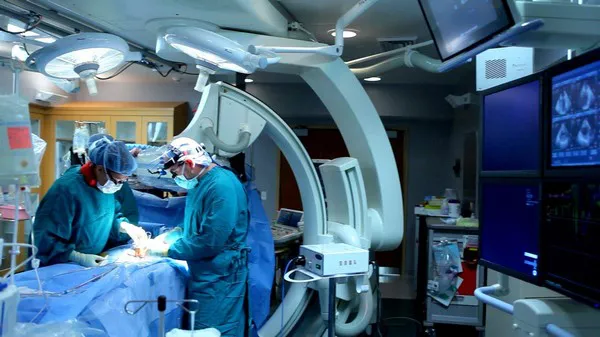In a shocking revelation, six individuals in Brazil’s highly regarded public health system have tested positive for HIV after receiving organ transplants. This unprecedented incident has ignited a wave of public outrage and raised serious questions about the integrity of Brazil’s organ donation system.
Brazil’s health officials are scrambling to explain how the virus responsible for AIDS was transmitted through organ transplants from donors who were supposed to be healthy. The six patients, who received organs from donors infected with HIV, have been left reeling from the devastating news. Among the patients, one recipient of an HIV-infected liver tragically passed away soon after the transplant. Health authorities are now investigating the cause of death and whether the virus played a role.
The troubling case emerged after reports from Band News and subsequent investigations revealed that at least two HIV-infected donors were incorrectly certified as HIV-negative by PCS Lab Saleme, the private laboratory responsible for testing organ donors in Rio de Janeiro. Following this, authorities launched an inquiry, which led to the suspension of the lab’s license and the arrest of two employees, including one of the lab’s partners, for suspected fraud and criminal misconduct.
As the news spread, the public and health experts were quick to point out the serious failure of the system. “It’s clear that a failure has occurred,” said Claudia Mello, the health secretary for Rio de Janeiro. “It’s unacceptable.”
The patients, who were already in need of life-saving transplants, have now been left to grapple with a lifelong HIV diagnosis that they did not anticipate. One kidney transplant recipient shared their shock with Brazilian television program Fantástico, stating, “It’s like the floor opened up; this will change my life completely.” Another patient echoed this sentiment, describing the situation as the “mistake of irresponsible people.”
Authorities are now working to determine whether other organs from HIV-infected donors may have been mistakenly transplanted and to what extent the failure of the testing process could have affected more patients.
At the center of the investigation is Jacqueline Iris Bacellar de Assis, a lab employee whose name appeared on documents verifying the health of the organ donors. Bacellar, who was identified as a biotechnician on the forms, told The Washington Post she had never claimed to be one. She also denied any involvement in the testing process. “I’m not a biotechnician. I’m an administrative supervisor,” she stated, adding that her job primarily involved overseeing administrative tasks and that her credentials had been used without her knowledge.
The situation has prompted calls for accountability, with some questioning whether PCS Lab Saleme’s negligence is a result of profit-driven motives. “They weren’t just worried about our lives,” one transplant recipient explained. “They were looking for profits. There is no justification for this.”
Brazil’s public health system, which offers free medical services to nearly 190 million people, has long been a point of national pride, particularly in the field of organ transplantation. In Rio de Janeiro alone, more than 16,000 organ transplants have been successfully performed in the past 20 years. However, this incident has cast a shadow over the reputation of Brazil’s health network, forcing officials to confront the flaws in the organ donation and testing process.
Rio de Janeiro Governor Cláudio Castro took to social media to express his outrage over the incident, emphasizing that the state must take responsibility for the breach of trust. “The state has the duty to assume responsibility for this unacceptable situation,” Castro said in a post on X (formerly Twitter).
As the investigation continues, health officials are focusing on determining how the error occurred and whether further actions should be taken to prevent similar incidents in the future. PCS Lab Saleme, which has operated since 1969, stated that it is cooperating with authorities and providing medical and psychological support to the affected patients and their families.
“The laboratory will work closely with the authorities, and we deeply regret the distress this situation has caused to the patients and their families,” the lab said in a public statement.
Brazilian authorities are committed to addressing the issue swiftly and ensuring that similar tragedies do not occur again in the future.
Read More:
$13M Settlement Approved Following Traumatic Active Shooter Drill At Michigan Hospital For Children
Over 400,000 California Health Workers To See Pay Boost With Minimum Wage Increase
Compounded Tirzepatide Production Allowed To Continue As FDA Reassesses Shortage Status


